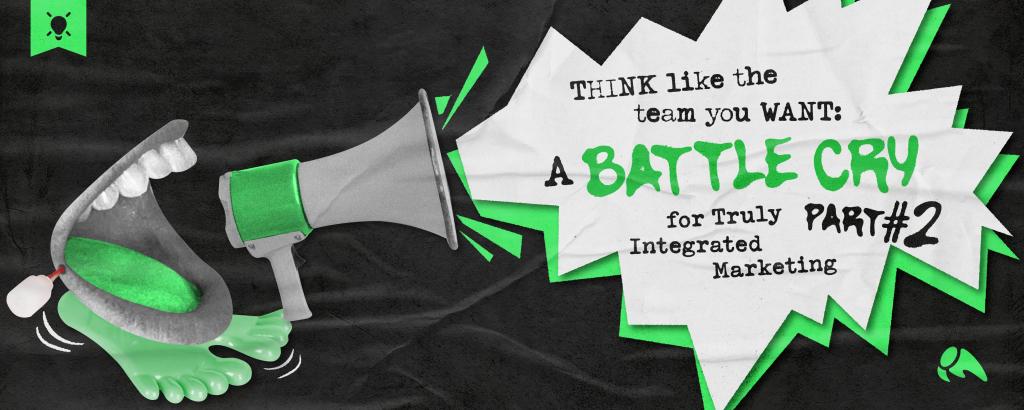We’ve all been there. We’ve all had a job where we had to work for THAT manager. In my experience working in various industries, I‘ve found myself on both sides of the What Kind Of Manager Are You table. I’ve had jobs where I’ve secretly wondered why I didn’t have my manager’s position and I’ve had jobs where I have truly learned something from the person above me.
Unfortunately, more often than not, the earlier is true.
Let’s reminisce (or have an unfortunate reality check) about some of the many manager types out there, shall we?
The Micromanager
You know the one. It’s that restaurant manager who finally came out of the office and hasn’t bothered to acknowledge you have 5 new tables but does manage to point out the ranch dressing needs to be refilled on the line. It’s the office manager who tells you to order staples when you are already ordering staples. It’s the guy who hands you a project to do and then does the project with you because “it won’t get done right.”
The Micromanager focuses on the small items and never looks at the bigger picture. Way to take the passion out of your player.
How to deal with them: Listen, no one likes being micromanaged. The constant check-in makes us feel like we’re not trusted or you don’t think we’re skilled enough at our jobs. If The Micromanager’s hovering is giving you anxiety, lay it all out on the table. Create a process that works better for the both of you – one where The Micromanager gets regular, clear updates about what’s going on, while allowing you to maintain the creative control you need to confidently attack the project. Learn what helps them build trust or what worries them in a professional environment. An honest conversation about work styles can nip these micromanagement blues in the bud.
The Absent Manager
[You get the point.]
How to deal with them: The tough part here is there is not much you can do; it’s pretty much a sink or swim situation. If you are a self- starter and are self managed you can sustain just fine in this work environment where it’s on you, and only you, to get the job done. Unfortunately you might not get the feedback or recognition you crave, which could affect your productivity over time. In these instances you will have to be the one to take the initiative to set up meetings and “touch base” with your boss.
Respect shown to The Absent Manager is often low and people will start to question what their purpose even is since they are never around. It could also come across that they simply doen’t care. Again, if the manager is absent, the employees could develop a lax mentality about the quality of work and overall productivity could drop.
The Nice Guy
This one’s a sucker. The one that can never say “no”, and who the staff walks all over. They are terrible at holding people accountable because they avoid confrontation at all costs. These can be the easiest to work for and also the messiest because there’s zero accountability and things never get done.
How to deal with them
: In some situations, this The Nice Guy isn’t so bad:
- You always get approval to take time off.
- Internal requests are approved fairly easily.
- You don’t get reamed if your projects are a few days late.
However, if you have a strong work ethic, you may find yourself constantly frustrated at the lack of accountability and having no one to step up to make sure things get done right. Adding to your frustration is you’re probably not in the position to confront people who are slacking even though it might be affecting your productivity.
So what do you do?
Step one is always to approach your manager in a gentle way and bring up your concerns with examples of what you are unable to get done and why. Then ask for direction. If this fails to help you may need to go over this persons head to reach someone who CAN help you. This can be awkward but it might work out to your benefit because you are not only taking initiative and showing confidence in your role, but you show a concern for the company as a whole.
The Dictator
Who DOESN’T love coming to work and walking on eggshells! I mean nothing is better than feeling uncomfortable every time The Dictator walks into the room. Nothing is ever good enough, intimidation is the highlight of this guys/gals day, and whatever they say goes.
I’ll tell you what: Things get done, but the staff is miserable.
How to deal with them: Smile and nod. This is normally a personality thing that won’t change so why get yourself all in a huff? The best way to deal with this person is to always be the calm one in the room, and to stand your ground without being argumentative.
There are some Dictators who have a completely different demeanor when you are talking to them one-on-one. So it might not hurt to try to open the lines of communication that way and see if your situation changes.
Being the Manager People Want to Work With
I’m sure you have already rattled off names from jobs past that fit into these fancy snippets. But the truth is you have to be a combination of all these types (yes, even absent at times) to be an effective leader.
In my 10 years of management, I’ve learned a number of key items to help you and your staff be successful. In the best situations your staff will not only respect you, but they’ll like you, too!
- Understand the company you work for. If you have a good hold on this you can set the right expectations for your staff and be able to support them effectively.
- Have regular meetings with your staff. How else will you have a strong pulse on what is happening and where their heads are at? It also shows them that you take the time to listen and makes you more approachable BECAUSE you know what’s going on.
- Help them set goals for themselves. There’s nothing worse than feeling like you are at a dead end job. Help them set up a career path with some achievements along the way. Investing in your staff is the best investment for any company.
- Listen to what they have to say. Believe it or not, your staff may have ideas to improve things that you never even thought of. Make them feel like they are a key part to the company’s success and that their opinions and ideas matter.
- Empower them to make decisions. In doing this it shows you have faith in their abilities and it will boost their confidence. Having to run every small detail by you for approval is counterproductive.
- Lead by example. It sounds so easy but most people don’t understand the impact of their behavior and how it can shape a team. If you show up late everyday, they will start showing up late everyday. If you walk around miserable and stressed out morale will drop. Be happy. Be confident. It’s hard to hold someone accountable if you don’t hold yourself to that same level.
There is one thing I hear time and time again. I read it in articles and blogs. I’ve heard it across time from co-workers, staff, and even management. Employees will not leave a great company with great people. But they will leave a great company because they can’t stand the people they work for. Poor leadership kills employee retention.
So, what kind of manager are you?







